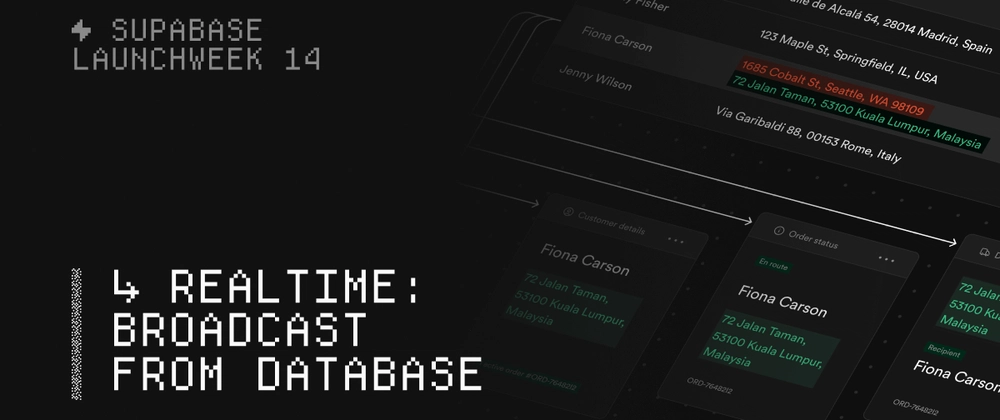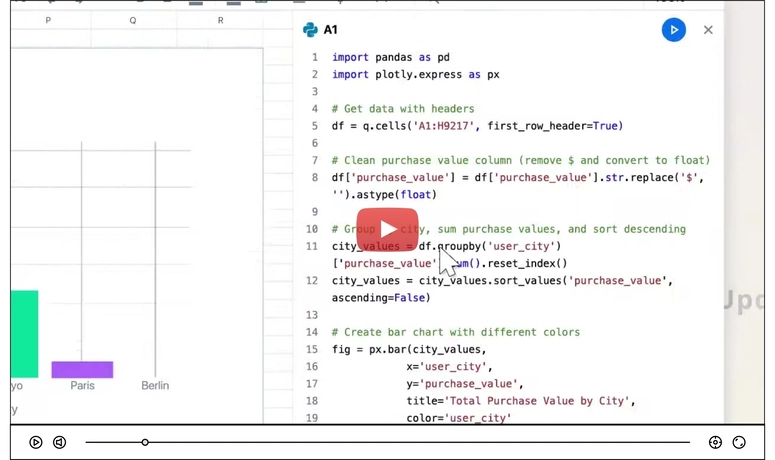Now you can use Realtime Broadcast to scale database changes sent to clients with Broadcast from Database.
What is Supabase Realtime?
You can use Supabase Realtime build immersive features like notifications, chats, live cursors, shared whiteboards, multiplayer games, and listen to Database changes.
Realtime includes the following features:
- Broadcast, to send low-latency messages using client libraries, REST, or your Database
- Presence, to store and synchronize online user state consistently across clients
- Postgres Changes, polls the Database, listens for changes, and sends messages to clients
Broadcasting from the Database is our latest improvement. It requires more initial setup than Postgres Changes, but offers more benefits:
- You can target specific actions (
INSERT,UPDATE,DELETE,TRUNCATE) - Choose which columns to send in the body of the message instead of the full record
- Use SQL to selectively send data to specific channels
You now have two options for building real-time applications using database changes:
- Broadcast from Database, to send messages triggered by changes within the Database itself
- Postgres Changes, polling Database for changes
Broadcast from Database
There are several scenarios where you will want to use Broadcast from Database instead of Postgres Changes, including:
- Applications with many connected users
- Sanitizing the payload of a message instead of providing the full record
- Reduction in latency of sent messages
Let’s walk through how to set up Broadcast from Database.
First, set up Row-Level Security (RLS) policies to control user access to relevant messages:
create policy "Authenticated users can receive broadcasts"
on "realtime"."messages"
for select
to authenticated
using ( true );
Then, set up the function that will be called whenever a Database change is detected:
create or replace function public.your_table_changes()
returns trigger
as $$
begin
perform realtime.broadcast_changes(
'topic:' || new.id::text, -- topic
tg_op, -- event
tg_op, -- operation
tg_table_name, -- table
tg_table_schema, -- schema
new, -- new record
old -- old record
);
return null;
end;
$$ language plpgsql;
Then, set up the trigger conditions under which you will execute the function:
create trigger broadcast_changes_for_your_table_trigger
after insert or update or delete
on public.your_table
for each row
execute function your_table_changes();
And finally, set up your client code to listen for changes:
const id = 'id'
await supabase.realtime.setAuth() // Needed for Realtime Authorization
const changes = supabase
.channel(`topic:${id}`, {
config: { private: true },
})
.on('broadcast', { event: 'INSERT' }, (payload) => console.log(payload))
.on('broadcast', { event: 'UPDATE' }, (payload) => console.log(payload))
.on('broadcast', { event: 'DELETE' }, (payload) => console.log(payload))
.subscribe()
Be sure to read the docs for more information and example use cases.
How does Broadcast from Database work?
Realtime Broadcast from Database sets up a replication slot against a publication created for the realtime.messagestable. This lets Realtime listen for Write Ahead Log (WAL) changes whenever new rows are inserted.
When Realtime spots a new insert in the WAL, it broadcasts that message to the target channel right away.
We created two helper functions:
-
realtime.send: A simple function that adds messages to therealtime.messagestable -
realtime.broadcast_changes: A more advanced function that creates payloads similar to Postgres Changes
These improvements let us scale subscribing to database changes to tens of thousands of connected users at once. They also enable new uses like:
- Broadcasting directly from Database functions
- Sending only specific fields to connected clients
- Creating scheduled events using Supabase Cron
All this makes your real-time applications faster and more flexible.
Get started with Supabase Realtime
Supabase Realtime can help you build more compelling experiences for your applications.
Discover use cases for Supabase Realtime
Read the Supabase Realtime documentation to learn more
Sign up for Supabase and get started today
Launch Week 14
Main Stage
Day 1 - Supabase UI Library
Day 2 - Supabase Edge Functions: Deploy from the Dashboard + Deno 2.1
Day 3 -Realtime: Broadcast from Database
Build Stage







Top comments (0)